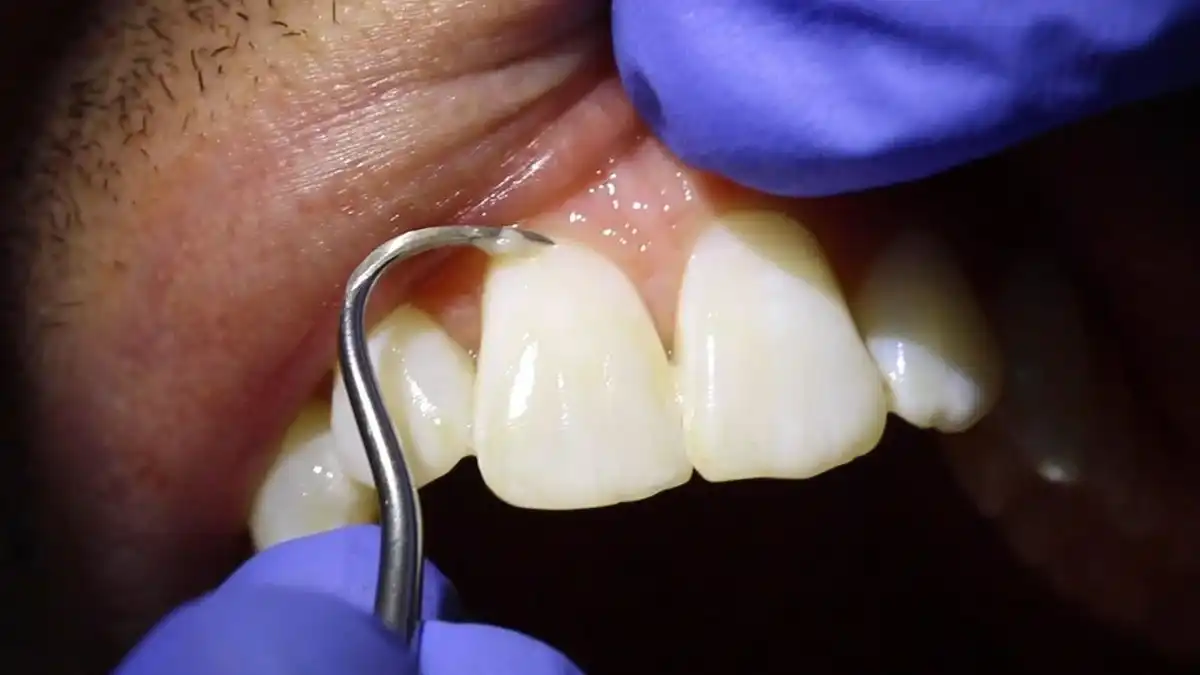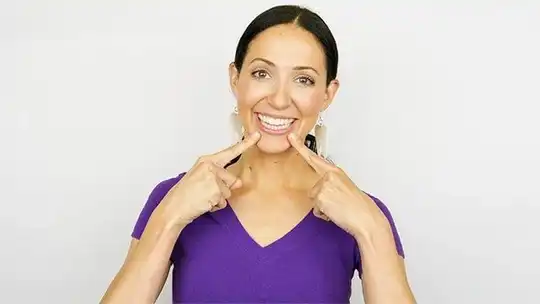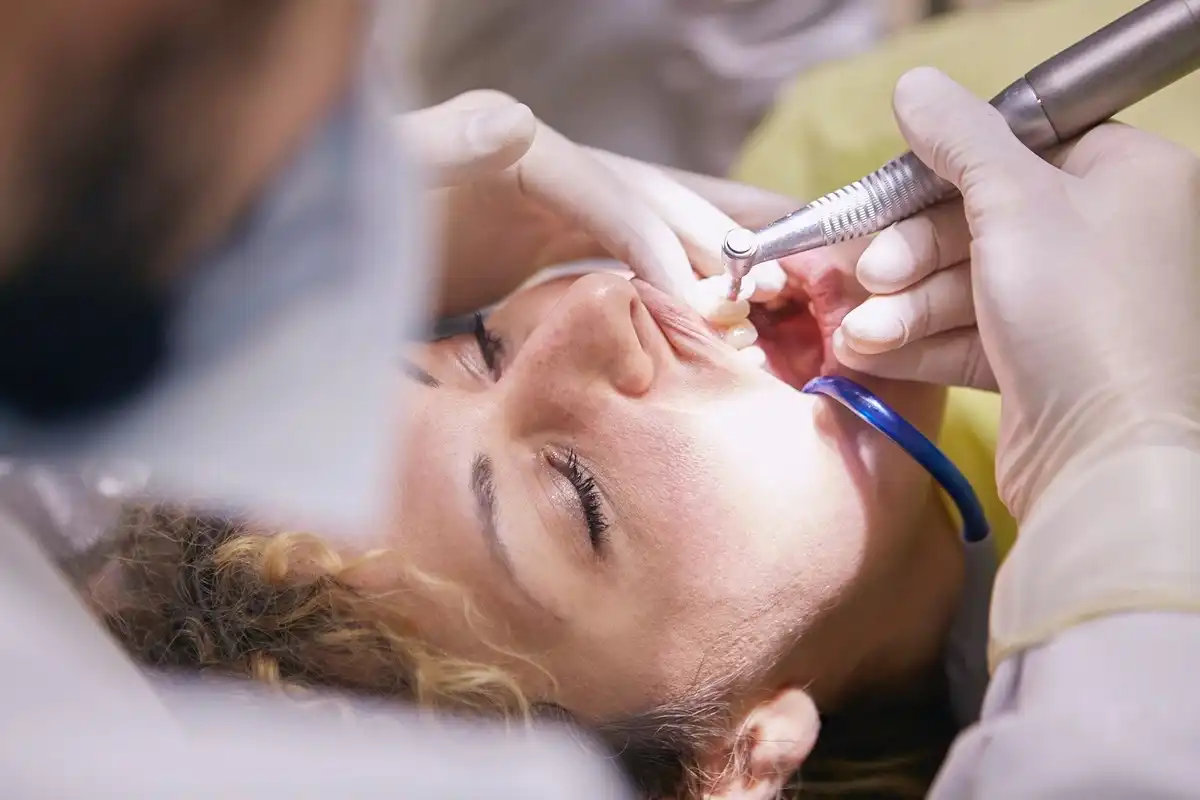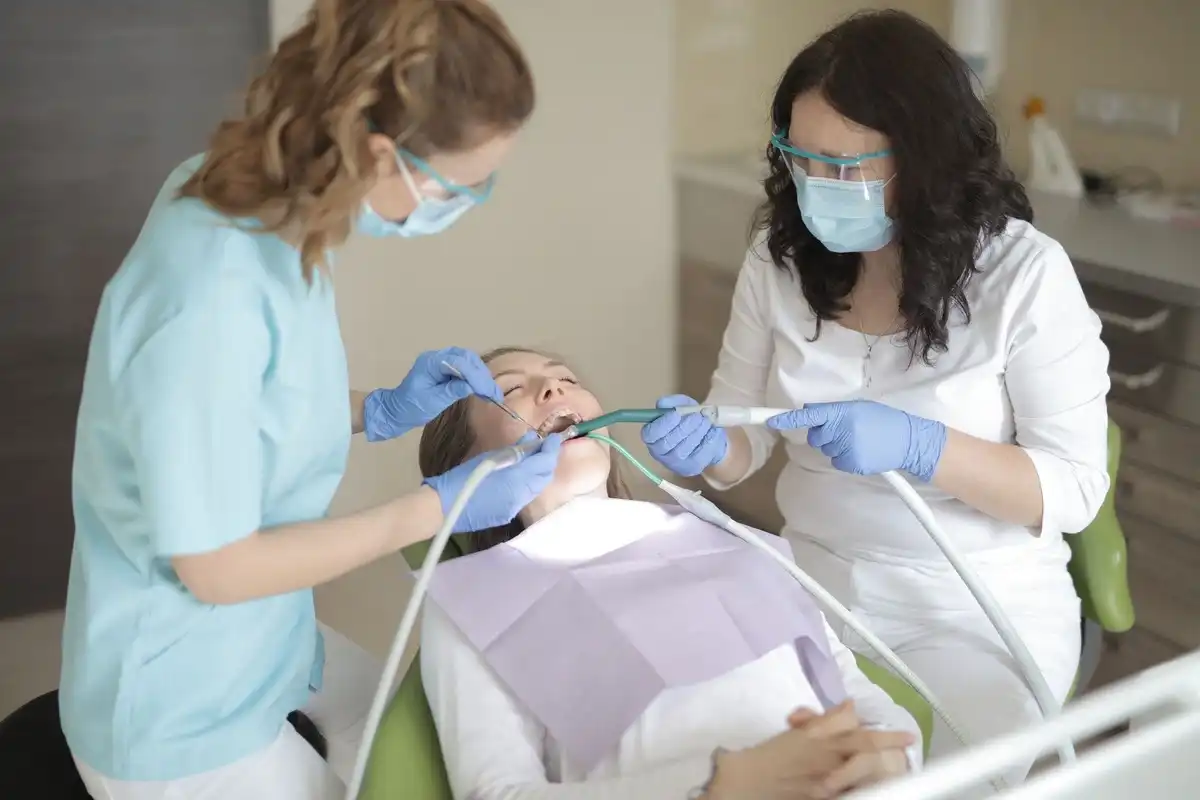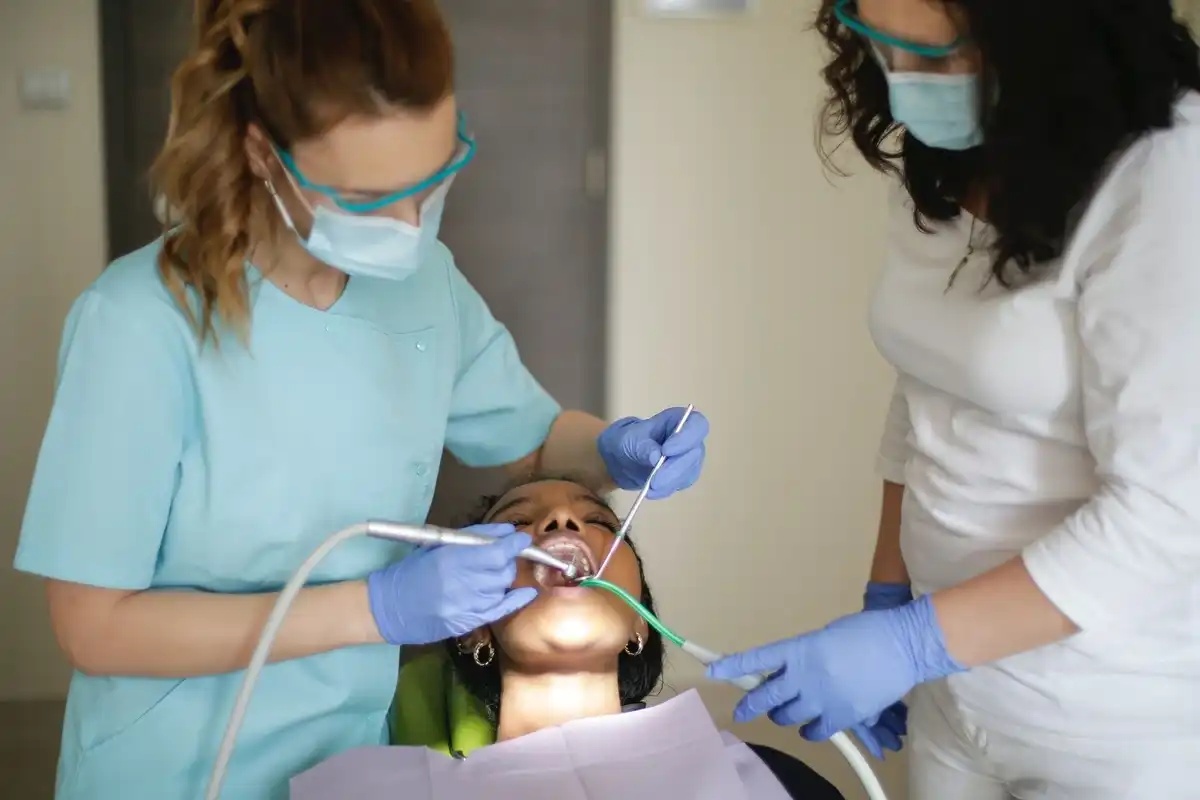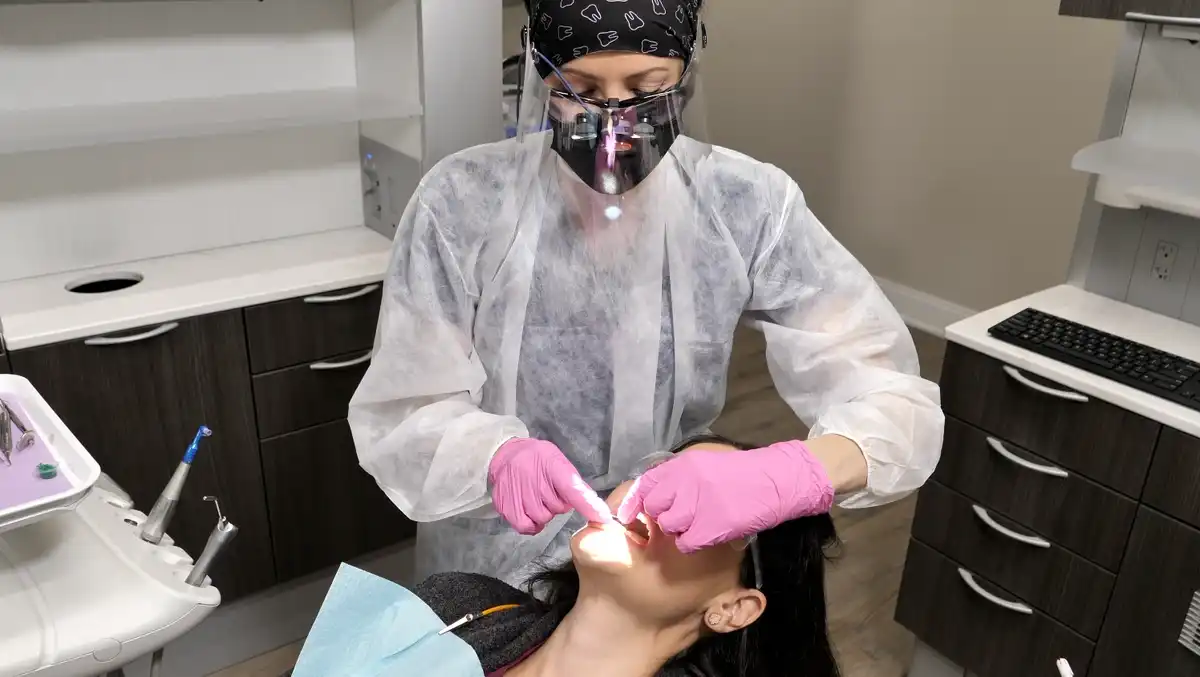Are Dentists Even Real Doctors?

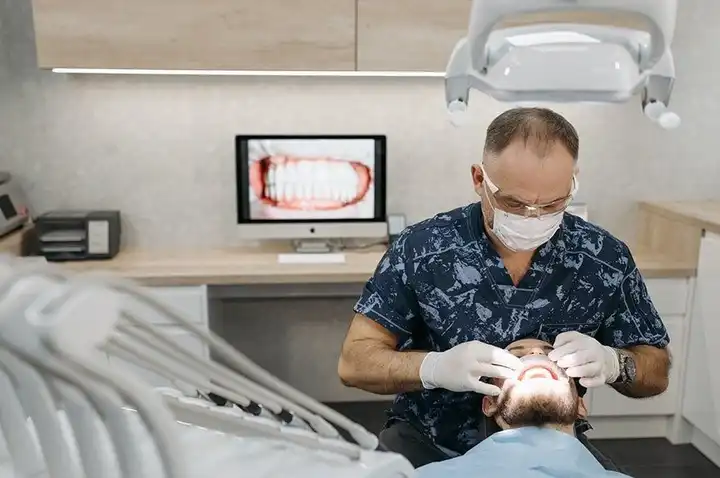
Any time you look up a new dentist, they always have “Dr.” before their name, or at least “DDS” or “DMD” at the end of it. Both staff and patients address the dentist as “doctor.” But are dentists doctors and is a dentist considered a physician of sorts? Is a dentist a medical doctor in some situations? You might actually be surprised…
Is A Dentist A Doctor?
Yes. Dentists hold doctoral degrees and therefore are considered “doctors”. Now is a dentist a medical doctor? In most cases, no. But there are some types of dental specialists—like oral surgeons—who undergo such rigid and extensive training that they are “dentist doctors” in that they have both a DDS and an MD behind their name.
Unlike someone with a PhD who is also called “doctor”, dentists have actual healthcare training and licenses. But is your general family dentist considered a physician? Not in the whole-body sense, but dentists are definitely doctors of the mouth. In fact, your family physician usually won’t treat your mouth, because it’s not something they’re trained to do; they send you to the doctors who are trained for mouths, which is your DDS (Doctor of Dental Surgery) or DMD, Doctor of Dental Medicine (Doctor of Medicine in Dentistry.)
What Exactly Is A Dentist?
Are dentists doctors of the mouth? Yes! Of the entire body? No. They’re trained doctors who treat diseases of the teeth, gums, bone, oral tissues, and offer therapeutic services to prevent said diseases. Some of the things a dentist might do is perform dental fillings, place crowns, replace missing teeth, dental implants, adjust bone growth patterns, perform bone and gum grafts, extract teeth, administer sleep apnea appliances, and fit prosthetics such as dentures.
Dentists are trained to screen for and diagnose diseases of the mouth, head, and neck. Depending on which dentist you visit, they may even palpate all of the lymph nodes through your neck and scalp. Remember: your mouth and body are interconnected! Is a dentist a medical doctor? No. But they can still treat and perform surgeries related to the mouth, as well as prescribe medications and administer anesthesia/sedation. You would not want a medical doctor performing a soft tissue graft and dental implant placement the same way you wouldn’t want them doing the surgical work of a podiatrist (feet) or ophthalmologist (eyes).
Getting Into Dental School
Dentists take an extensive load of biology, chemistry, and math such as physics prior to being admitted into dental school. Many of the applicants hold similar undergraduate degrees or coursework to their medical school counterparts. In fact, it’s not uncommon for people to apply to both, especially since dentistry offers a much more appealing work-life balance.
How Long Is Dental School?
Once in dental school, dental students undergo a rigorous two years of training in biomedical sciences and then two years of clinical dentistry (making it a 4-year degree in addition to their undergraduate degree, so about 7-8+ years of school). Dentists can also pursue postgraduate specialization where they complete residencies as long as 3 years to become experts in various areas of dentistry (oral surgery, periodontics, orthodontics, pediatric dentistry, etc.) Basically, if you’re seeing a dental specialist, they spent as many as 11 years in school after graduating high school (that’s like completing 1st through 12th grade all over again) to get there.
The DAT
Like aspiring medical doctors who have to take the MCAT exam to get into medical school, hopeful one-day dentists must take an exam called the DAT (dental aptitude/admission test). This test covers a broad scope of biology, organic chemistry, general chemistry, perceptual ability, and quantitative reasoning. You only have three tries to pass the exam. After that, you can no longer take the DAT to apply to dental school, unless you get special permission from the American Dental Association. The DAT is a 4.5 hour test and your results are weighed along with your GPA as part of your admissions process. Most dental schools require a minimum DAT score in addition to high grades in science courses.
DDS Vs. DMD
There are two basic types of general dentists: Doctor of Dental Surgery (DDS) and Doctors of Medicine in Dentistry (DMD). Similar to how there may be two types of family physicians (MD-Medical Doctor and DO-Doctor of Osteopathic Medicine.)
As MDs and DOs are able to provide the same comprehensive level of medical care, DMDs and DDSs do the same for dentistry. Both are completely equal degrees and hold completely equal licenses.
- Diagnosis of disease
- Treatment planning
- Oral health promotion
- Monitoring oral development
- Surgical procedures
- Emergency care
What is the difference between a DMD and DDS? Nothing more than the type of degree offered from the dental school they attended. The training and curriculum are identical. They are essentially the same exact thing with zero significance between the two.
Dentists Are Real Doctors
In addition to four years of post-graduate training in oral and dental health, dentists are also highly trained in pharmacology, pathology, and the oral-systemic health relationship. Because many diseases first present themselves as symptoms within the mouth, dentists can be your first line of defense for a proper diagnoses and dental care treatment. And we’re not just talking oral cancer. Numerous underlying health conditions can affect the soft tissues in your mouth, which is why it’s so important to share your full health history with your dental team.
A dentist is considered a physician of the mouth. They can prescribe medication that you can’t buy over-the-counter, such as antibiotics, pain killers, steroids, muscle relaxers, etc. They can also administer sedation medications in their office during your planned dental procedures. Some of them even offer Botox.
Any time your dentist is treating or restoring a tooth, they’re essentially performing surgery. Hard body structures are altered and repaired; even spaces inside of the bone are treated at times. You wouldn’t want somebody without a doctoral level of training to do that to your mouth! Nor would you want to take a prescription from them.
The Best Doctor For Your Mouth
Are dentists doctors? Yes. But is a dentist considered a physician (medical, that is)? No. But you wouldn’t want to go to your family doctor for an abscessed tooth, cyst in your jaw, impacted wisdom tooth, or something else. Your physician would send you back to a dentist to get the appropriate level of care that you need to stay healthy. Unfortunately, the medical community (and even health insurance for that matter) has drawn a significant separation between the mouth and body. But the good news is that more experts are realizing the life-saving benefits of the oral-systemic connection and how a licensed dentist can significantly benefit your overall health for years to come.

Make your inbox smile!
Subscribe
